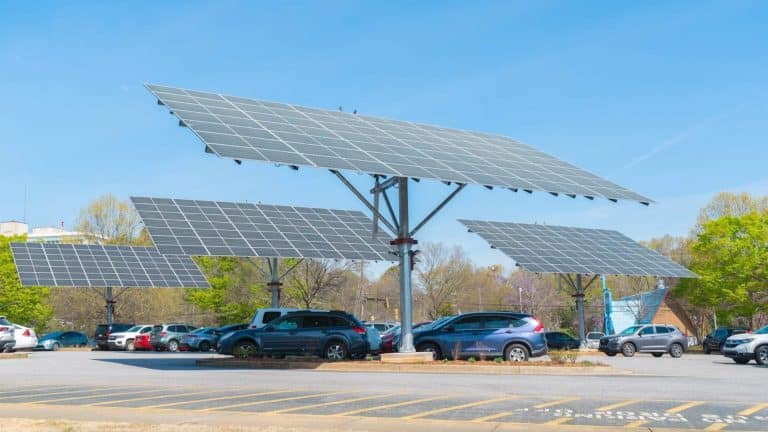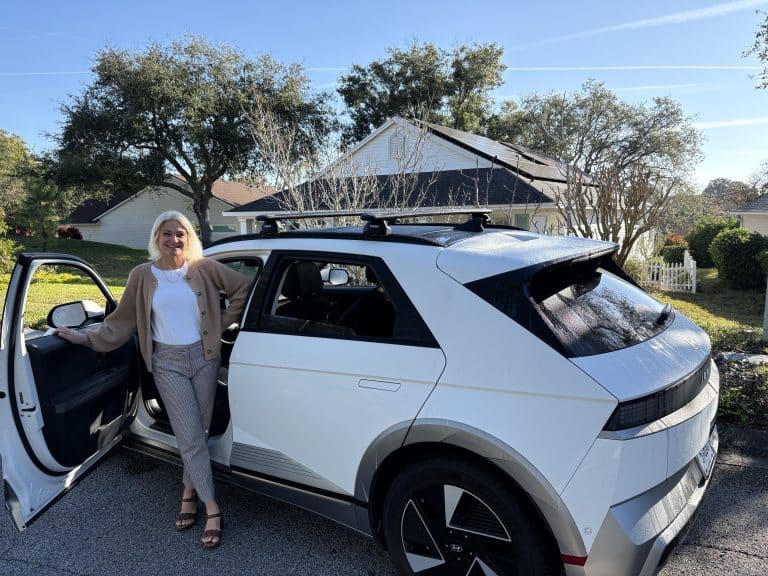I want to be honest, introducing myself is often an arduous task. Not because talking about myself is difficult, that’s the easy part. The hard part is the act of telling my story before it’s apprehended. Working as a Black woman in any space often means my introduction is perceived before one syllable is rolled off my tongue. So since I can’t help what perceptions may be made when you see my face, I thought we might as well skip the pleasantries and dig straight into the nexus of equity and environmentalism and why I’m here by starting with a quote from one of my favorite activists in the environmentalism movement.
“Ignoring the existence of privilege is a privilege in its own right.” – Leah Thomas, “The Intersectional Environmentalist”
I am here because I am choosing to not ignore my privilege.
Learning how to foster and implement equitable change did not begin in a classroom and it did not begin with a job. It began with connecting to my environment. I felt and saw what “environmental injustices” were before I ever learned there was an official term for them. Growing up in New Orleans, Louisiana, I experienced what the end of the world felt like when my community, home, and sense of self were swept away in Hurricane Katrina.
Many of the people of New Orleans were doomed from the beginning because the environment crafted for them was not meant for survival. The only reason I was able to evacuate in time was my access to reliable transportation, which my mother only secured a few months before Katrina hit. What if we weren’t able to get a car? Would we have gotten out in time? Would we have to wait on our roof until someone hopefully found us? Or would we have lost our lives like others I knew? How unbelievable to think how many lives could have been saved if people had the means and access to move out of harm’s way.
The fact of the matter is, environmental suffering was widespread in New Orleans before Katrina due to historical injustices established and carried out for generations. The hurricane just exposed in an extreme way what a lack of equitable built environment, a lack of empathetic human response, and a lack of reliable access to mobility means.
Intersectional Environmentalism
On August 28, 2005, I had the privilege of having access to transportation, and therefore, I now benefit from the privilege of survival. How I choose to use the advantages I have with this privilege is to honor those who didn’t survive by recognizing and addressing environmental injustices in order to prevent them from happening again in the future. I do this by practicing intersectional environmentalism, which is the application of advocating for both the protection and preservation of people and the planet, as humans are also part of the delicate ecosystem of life that cannot be separated from nature. Employing intersectional environmentalism means examining the ways that interlocking identities, like gender, race, class, religion, etc., interact with natural and man-made environments and how these relationships impact environmental justice.
Saving the environment cannot just mean reducing greenhouse gases to prevent catastrophic natural events, it also has to mean making sure that the beings who inhabit this world can flourish and live in it now and into the future.
Although the term “intersectional environmentalism” was recently coined by Thomas, the action and thought of advocating for shared justice for nature and people is not new. There have been people and communities doing this work for decades, going back to the earliest recorded intersectional environmental protests of the 60s like the 1968 Black-led Memphis Sanitation Strike and the 1969 Indigenous-led occupation of Alcatraz. The intersectional environmentalism I practice is a continuation of spirited advocacy that’s been passed down for generations. Saving the environment cannot just mean reducing greenhouse gases to prevent catastrophic natural events, it also has to mean making sure that the beings who inhabit this world can flourish and live in it now and into the future.
Since entering the environmental space, I have been striving to include the “People + Planet” model in everything I do. My work in championing equitable access to clean transportation technologies, education, and solutions began for me in the Clean Cities network. Seeing the potential of what a world can look and feel like running on clean energy is exciting and I want to see this green, safe, and healthy future become a reality for everyone.
In my role with Southern Alliance for Clean Energy (SACE), I will work to grow electric transportation ownership and access for all and support equitable electric transportation policies and programs already in place. I will also be contributing my own knowledge and experience to further the progress of connecting electrification benefits across the region while actively advancing my equity-implementing skills.
The environment and climate do not discriminate, people do.
When I reflect on what happened to my world in 2005 and the things I still see happening, one thing remains consistent in my soul and understanding: The hurricane, the actual catastrophic weather conditions and aftermath, is not what I am exceedingly wroth about; it’s the hostile and uninhabitable conditions that were created and still perpetrated that riles me. Living through Katrina, and coming to more fully understand the injustices showcased through such a catastrophe, has made me realize a truth that I now have the knowledge to verbalize to others: The environment and climate do not discriminate, people do.
To lean on the wisdom of an old proverb, you have to be careful who you let on your ship, because some people will sink the whole ship just because they can’t be the captain. When environmental policies and decisions are made by some people it works against the environmental health of our planet and the lives of all people. We are all on the same boat, and although the lowest parts of the ship may sink first, the whole ship still perishes.
Healing our environment is quite frankly the most important and urgent action for our generation. I am thrilled to join the SACE team in the journey to a more just, green, and clean Southeast.
I believe in order for a just and equitable electric transition to happen, we have to bridge the divide in decision-making power. There has to be an emphasis on collaboration, community empowerment, and investment and resources going to the people that are closest to the issue. It truly does take a village to accomplish anything, and I’m excited to work with the mosaic of lived experiences in the Southeast to better our environment.
Electrify the South is a Southern Alliance for Clean Energy program that leverages research, advocacy, and outreach to promote renewable energy and accelerate the equitable transition to electric transportation throughout the Southeast. Visit ElectrifytheSouth.org to learn more and connect with us.


